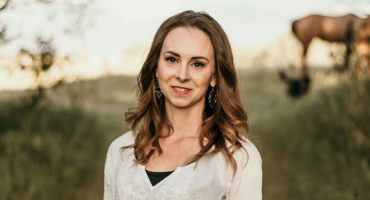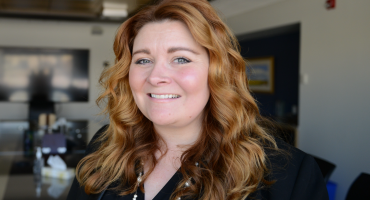With unpredictable weather, long working days, and periods of isolation, producers are at a higher risk for mental illness than many other professions.
Do More Ag and Bayer CropScience are fighting to ensure that hard-working farmers have the tools they need to achieve better mental health with a Mental Health First-Aid certification course.
We invited Adelle Stewart of Do More Ag and Shannon Wentz of Bayer CropScience to participate in our “Three Questions” editorial spotlight on this initiative.

 Adelle Stewart. Source: The Do More Agriculture Foundation
Adelle Stewart. Source: The Do More Agriculture Foundation
Adelle Stewart, Executive Director, The Do More Agriculture Foundation
- Tell us about your idea/initiative.
The Mental Health First Aid training course is an initiative available to rural residents through the Community Fund. The fund was piloted in the fall of 2018, and in early 2019 mental health literacy training occurred in rural agriculture areas across Canada. The initiative, in partnership with Farm Credit Canada, and supported by several organizations including Bayer, is aimed at assisting producers to Talk, Ask, and Listen more when it comes to mental health in ag, as well as equip them with the tools and education to support someone who may be struggling.
- Why is this important?
Increasing and improving mental health literacy within the agriculture community is paramount to the values of our organization. Rural mental health supports are sparse, and it can be a scary topic to open with a friend or family member if you don’t have any formal training. The Mental Health First Aid training course empowers friends, families and neighbours with tools to talk to each other, notice signs and symptoms of mental illness, and understand how to access resources.
- What is your hope? How would you define success with this project?
The resounding success of the pilot combined with even further increased interest and expansion needs for year two, is in itself a huge success. It means that our ag producers are not only willing to talk about mental health but are hungry to develop knowledge and skills to support their loved ones and continue to break down the stigma that surrounds mental illness.

Shannon Wentz. Source: Bayer CropScience
Shannon Wentz, Digital Marketing Manager, Bayer CropScience
- Tell us about your idea/initiative.
We know Canadian farmers are one of the most vulnerable groups when it comes to mental health. Long hours in isolation, stress and financial uncertainty are only a few of the contributing factors to the mental health issues this community is facing. However, the stigma associated with mental health remains a significant barrier for those in need.
Bayer has partnered with the Do More Agriculture Foundation since 2018, to support its mission of providing help and resources to farmers seeking mental health assistance.
- Why is this important?
Working alongside farmers, we see first-hand the challenges they face. As a life science company focused on health, Bayer believes it is important to bring these issues to the forefront and help find solutions. Through our partnership with Do More Ag, we want to help break the stigma and create a community of support that empowers farmers to prioritize their mental wellbeing.
- What is your hope? How would you define success with this project?
Our hope is to encourage dialogue around this important conversation so those in the community dealing with mental health concerns will know they are not alone. We want to support Do More Ag as they continue to break the stigma around this topic and encourage growers to seek help when in need.